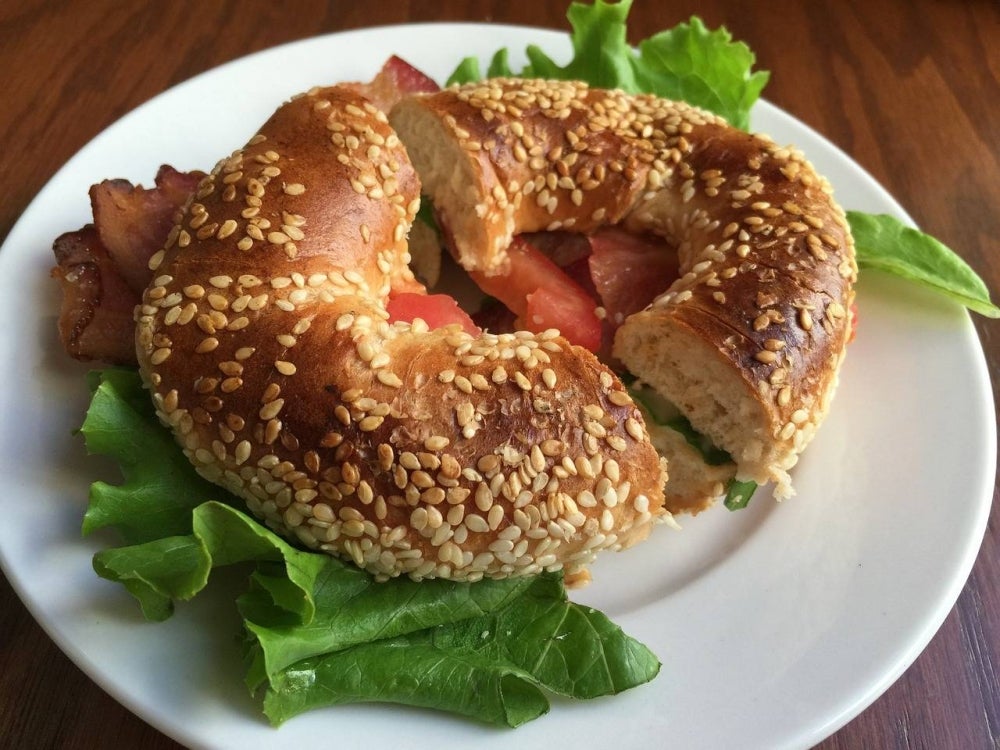New York bagels: an evolving classic


NEW YORK, US - Bagels are as synonymous with New York as pizza and the Statue of Liberty.
Although there is no official count of New York's daily bagel production, Sam Silverman, chief executive of the trade group Bagelup, estimates there are about 500 specialty shops across the city's five boroughs.
The ring-shaped bread has evolved and been reinvented since its arrival more than a century ago thanks to Polish Jewish immigrants.
Here are some key points in New York bagel history:
- The early days -
While there is debate over just when the first bagels appeared, historians agree that the bread originally arrived in New York in the late 19th century.
The bagel grew in popularity in Manhattan's Lower East Side in neighborhoods populated by Jewish immigrants from Poland, where it had been made for centuries.
By 1900, the industry had already expanded to 70 bagel shops, although working conditions were "terrible," according to Maria Balinksa's book, "The Bagel: The Surprising History of a Modest Bread." Balinksa chronicles a triumphant 1909 baker strike that upgraded pay and working conditions, helping to propel the broader labor movement in the early 20th century.
- Lox and cream cheese -
The iconic sandwich -- a bagel with cream cheese and lox, or cured salmon that may or may not be smoked -- became popular in New York in the period between the World Wars and has been a mainstay ever since.
Author Jeffrey A. Marx dates the dish to the late 1920s, about a half century after cream cheese was invented by New York state dairy farmer William Lawrence.
The combination took off during a banner period for New York Jewish delicatessens, which specialized in expensive smoked and pickled meats, spawning new concoctions including the Reuben sandwich.
- Going mainstream - Balinska points to the 1960s as the period when bagels attained broader popularity beyond the Jewish community.
Innovations such as the rotating oven enabled bakers to significantly increase output. That led to the arrival of shops touting "hot" bagels directly to consumers; before, they were only available wholesale.
Central players in the further "bagelizing" of America were the Lender brothers, who successfully mass marketed the frozen bagel -- pre-sliced, of course -- in the 1960s, expanding nationwide by 1977.
- Everything juggernaut - Over the years, bakers began coating bagels with toppings including salt, sesame seeds, poppy seeds, onion and garlic.
At Bo's Bagels, all of these play second fiddle to the "everything bagel," which includes a smattering of all these toppings. Bo's sells more everything bagels than all of the other types combined, said owner Andrew Martinez.
The origin of the everything bagel is "disputed," with claims to fame made by New York restaurateur Joseph Bastianich and Long Island advertising businessman David Gussin, who told The New Yorker in 2008 that he experimented with the seasonings during a stint at a Queens takeout shop in around 1980.
While the everything bagel reigns in the Big Apple, it ranks third nationally behind blueberry and cinnamon raison, according to Silverman, noting the popularity of sweet foods outside the bagel's US hometown.
- The foodie era - The mainstreaming of foodie culture has led to increasingly ambitious bagel sandwiches in the twenty-first century, making the traditional lox sandwich look quaint, with sushi and pulled pork in the mix.
Funky, newer bagel flavors include french toast and cheddar jalapeno, while blueberry, avocado garlic and red velvet cream cheese are now available - AFP
Download Sinar Daily application.Click Here!














